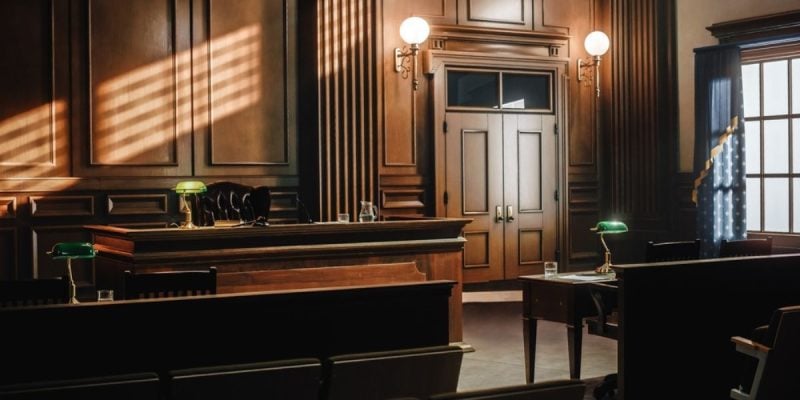California Indian tribes have long sought a way to defend their gaming exclusivity from table games they allege commercial cardrooms offer illegally.
The California legislature voted at the end of the session to allow tribes access to state courts to get a final decision.
The Senate voted 32-2 on Saturday, the last day of the legislative session, to pass SB549, the Tribal Nations Access to Justice Act. That followed a unanimous 62-0 vote by the Assembly two days earlier.
“The passage of SB549 is fantastic news for California’s tribal nations,” California Nations Indian Gaming Association Chairman James Siva said in a CNIGA statement. “For over a decade, California tribes have engaged in considerable efforts to defend our exclusive gaming rights guaranteed in the California Constitution. The Tribal Nations Access to Justice Act gives tribes access to justice that has been denied not only in this case, but throughout California history.”
If signed by Gov. Gavin Newsom, as expected, tribes will have a limited opportunity for one consolidated lawsuit against all California cardrooms and third-party proposition player services regarding how they collaborate to offer traditionally house-banked games such as blackjack and baccarat.
Legislature wants end to tribal-cardroom conflict
For more than a decade, tribes attempted to find a way to stop cardrooms from offering games they believe violate the exclusivity over banked card games given them by Prop 1A in 2000. This included court cases that were thrown out for lack of standing, pleading with lawmakers for a legislative fix, requests to the attorney general and Bureau of Gambling Control, and a clause attached to a failed tribal sports betting initiative.
It became a controversial and intractable issue with abundant lobbying dollars spent on both sides. Cardrooms aligned with labor unions and local cities that rely on their revenue to battle the politically influential tribes.
With the overwhelming vote of approval in both chambers, California lawmakers took the side that they want the conflict to end and said allowing courts to decide the issue is the fairest solution.
“This legislation is about doing right by California’s Indian tribes, to whom Californians made a binding commitment in 2000 by passing a proposition which explicitly gives them an exclusive right to certain games in recognition of the historical harms to which they were subject,” Sen. Josh Newman, the bill’s author, said in the statement. “It’s important to note that this bill does not presume to resolve this longstanding dispute directly.”
“Instead, it simply provides a path for the courts to rule whether or not cardrooms are infringing on the tribes’ right to offer the games exclusively. California’s tribes deserve an opportunity to achieve clarity by simply having their day in court. In giving them standing to do so, SB 549 creates a deliberate, circumscribed mechanism to resolve a business dispute in California in a way that ensures that both parties can present their arguments and then allows the courts to make a decision based firmly and purely in law.”
Details of Tribal Nations Access to Justice Act
SB549 grants tribes legal standing to seek a declaratory judgment on whether the games offered by cardrooms violate the state constitution.
Tribes had previously been unable to access state courts because, as sovereign nations, they are not subject to state court jurisdiction.
The Tribal Access to Justice Act:
- Allows tribes to file lawsuits consolidated into one case in the Superior Court of California, County of Sacramento.
- Requires actions filed no later than April 1, 2025.
- Orders the court to conduct its review de novo, or without referring to any previous court’s legal conclusions or assumptions.
- Allows no claims for monetary damages, penalties or attorney’s fees.
- Does not hold the state liable.
- Does not allow for any actions taken against cardrooms until after final judgment.
Tribes committed to pushing for the legislation after seeing how much their revenue from table games rose when cardrooms were closed during the pandemic. The Viejas Band of Kumeyaay Indians led the effort that began last year.
“This has never been a fight about gaming — it has always been a fight about civil rights and judicial access for tribes,” Viejas Chairman John Christman said. “We are thankful that the vast majority of the legislature finally saw through the political noise and stood on the side of justice and access for our people.”
Cardrooms might have avenues to challenge act
Cardrooms and their allies are disgruntled that the Senate passed the bill without going through the typical committee process. Although SB549 started in the Senate, it passed through that chamber in May of 2023 as a change to the education code.
As the bill author, Newman amended SB549 in June of 2023 and substituted the tribal lawsuit language. The Senate concurred with the changes without holding a hearing on the Tribal Nations Access to Justice Act.
Sen. Bill Dodd, who chairs the Senate Governmental Organization Commmittee that handles gaming issues, was one of two no votes.
“We are disappointed that this legislation was rushed through at the last minute, bypassing any Senate committee hearing or transparency,” Becky Warren, spokesperson for the California Gaming Association, told PlayUSA. “This unfair bill, strongly opposed by public employee unions, firefighters, cities and cardrooms, is a disservice to our communities, harming jobs and resident services.”
Warren urged the governor to veto the bill for those reasons. However, that seems unlikely given the overwhelming legislative support and tribal backing.
Opponents could find other paths to challenge the statutes created by SB549.
If the case goes to court, parties agree the trial and appeals process will take at least four years and almost certainly end in the California Supreme Court. Cardroom games will continue operating as normal during the court proceedings.








